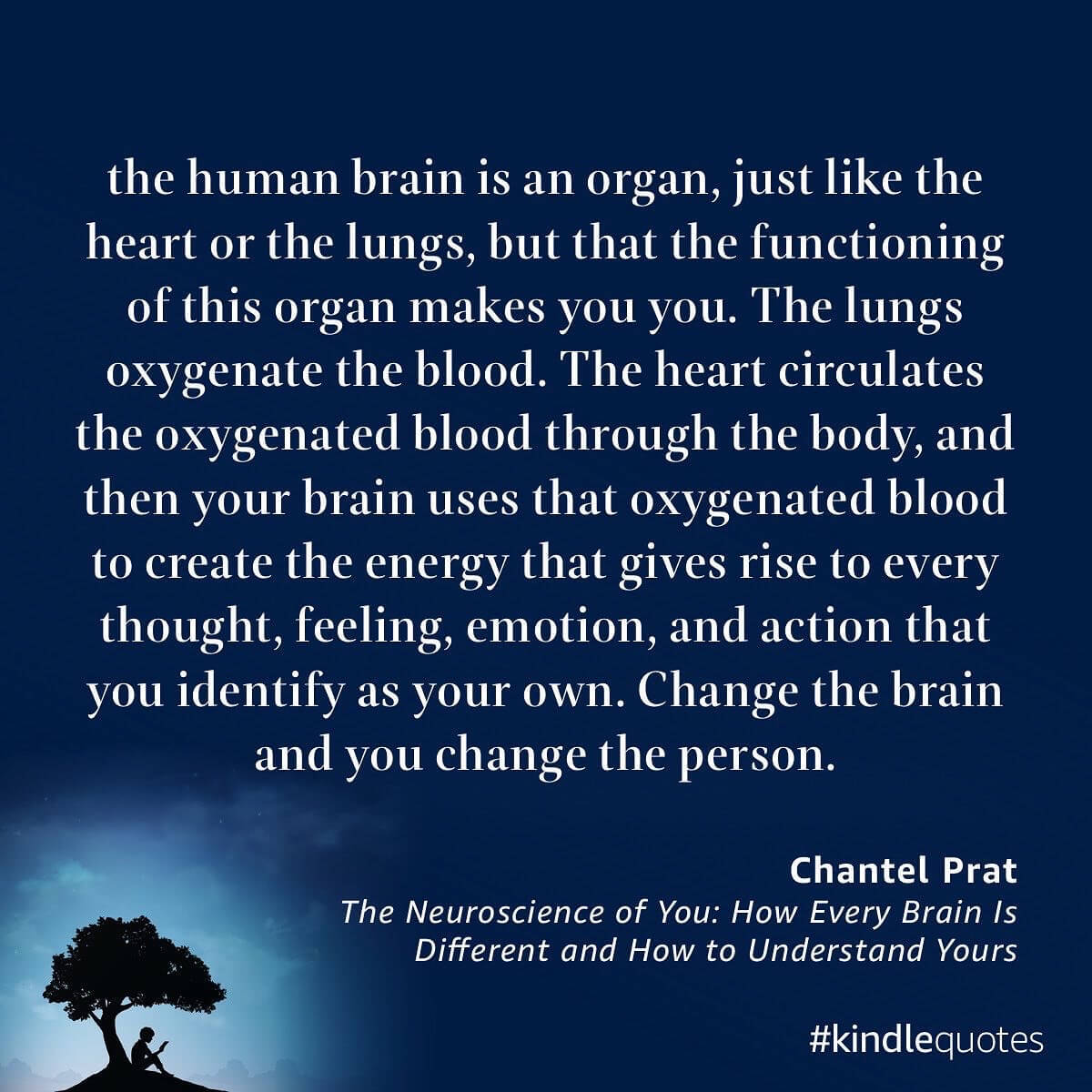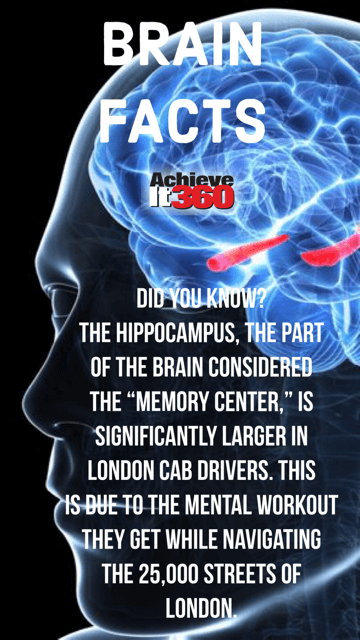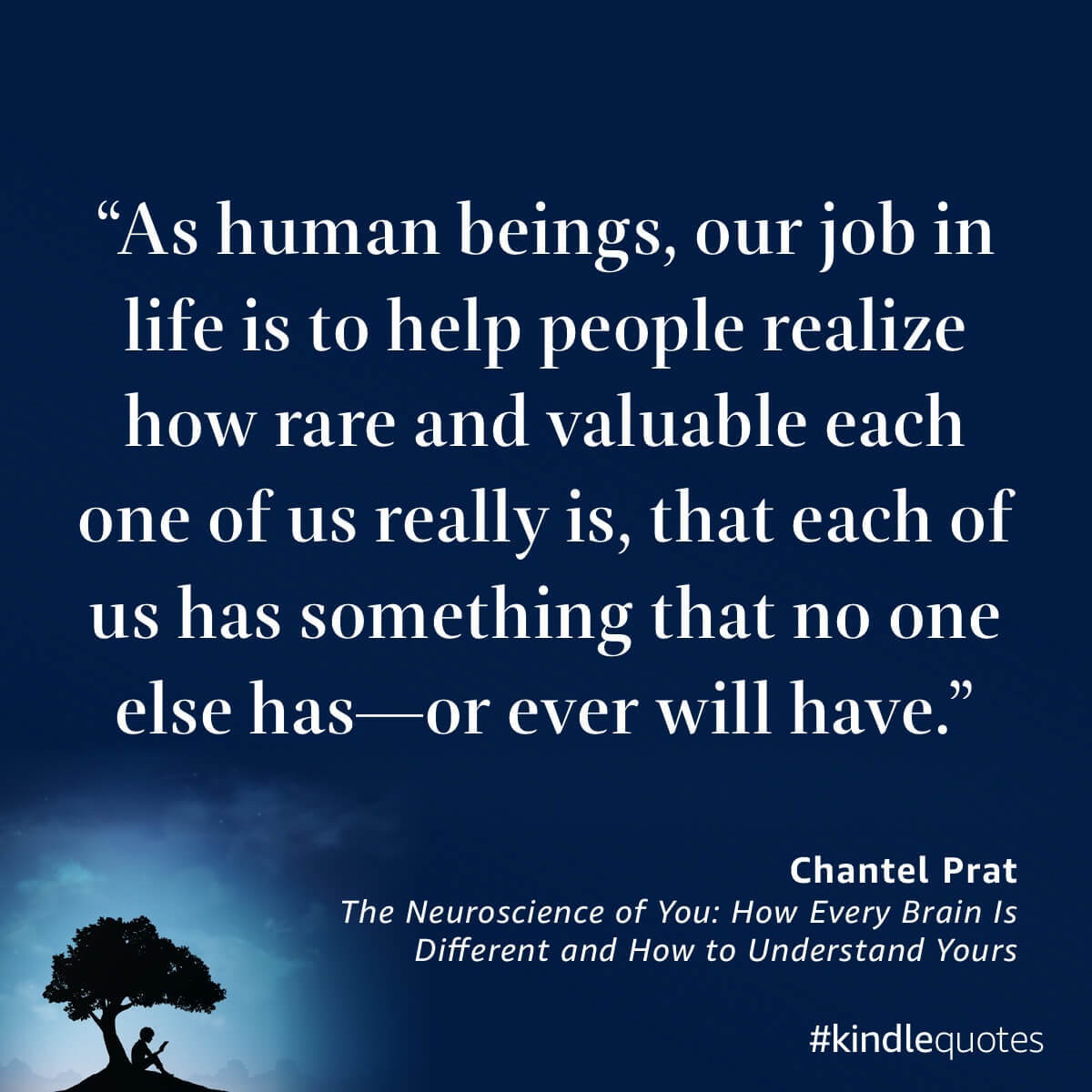Welcome back to The Neuroscience Meets Social and Emotional Learning Podcast. I’m Andrea Samadi, and launched this podcast just over 3 years ago, with a vision to bridge the gap between theory and practice, and help all of us (whether we are a teacher in the classroom, or in the modern workplace) to understand the most current brain research, and how to use it, for improved productivity and results.
On this episode we will cover:
✔ That we are all unique and our brain makes us this way. (Chantel Prat, Ph.D)
✔ If we want to change ourselves in any way, this change must involve our brain. (Chantel Prat, Ph.D).
✔ We can change our brain for the better, by repeatedly taking action towards our goals, and strengthening our “roads” or neural pathways.
✔ We can also change our brains for the worse. (Dr. Andrew Huberman)
✔ As human beings, our job is to help people realize how rare and valuable each of us really is. (Chatel Prat, Ph.D).
For this week’s Brain Fact Friday, I want to leverage off something we’ve been talking about on the past few episodes, that we are all unique, and our brain makes us this way with “a pattern of connectivity as unique as our fingerprints.” (Deane Alban).
Have you ever wondered “what makes you unique from others? Or why you do things a certain way?” I certainly have wondered this, and I think back to the days I worked in the motivational speaking industry and when discussing how change occurs, we went straight to the importance of understanding our paradigms, or habitual behavior and that if we want to experience change, we would need to change these habits, that began with changing our thoughts, feelings and actions, to attain the newly desired results. But now I see that there’s a simple answer to why we are unique, or do things in a certain way.
I recently came across Chantel Prat’s book, The Neuroscience of You: How Every Brain is Different and How to Understand Yours[i] and I thought back to last week’s Brain Fact Friday, and EP 244[ii] where we looked at how we are all unique, and it’s our brain that makes us this way, and I wondered what we could learn from Chantel’s book, that just came out last month, to help us to figure out who we are, with our brain in mind. I haven’t finished reading her book yet, but the answer to “why we do what we do” stems from the fact that “my brain makes me this way.” (location 34, The Neuroscience of You, Prat).
Prat tells the story of when she first realized this to be true, when she took a course that described the famous story of Phineas Gage, who was a railway worker who made an error that caused an iron spike to blast through his left cheek and out the top of his head, and this essentially changed the personality of Phineas Gage.
For this week’s Brain Fact Friday, I’m taking this AHA moment from Chantel Prat’s The Neuroscience of You to help us to understand ourselves on a deeper level.

“If you change your brain, you change the person.”
I could think about this one for the next year! I’m always looking for ways that we can improve our productivity and results, (and change ourselves for the better) and it would make sense to me that if we want to change ourselves in any way, that this change must take place in the brain, which will change the person.
How exactly do we change our brain?
Chantel Prat tells us that we can soak our brain in cortisol by increasing our stress levels, and this in fact will change our brain. But that’s not the change I’m looking for. Or we can shrink our brain with the research that Dr. Andrew Huberman[iii] provided for us on his eye-opening podcast episode on “What Alcohol Does to Your Body, Brain and Health” which is also not the answer I was looking for. Or we can repeatedly take certain actions to strengthen the neural pathways or “roads” in our brain, and with time, these pathways strengthen, making whatever we are learning simpler, and easier to perform. This is getting closer to the change I’m hoping we all can attain. When we do something over and over again, eventually we will change our brain in the process, like the London taxi drivers, whose memory center, or the hippocampus in their brain, was significantly larger due to the mental workout they get while navigating the 25,00 streets of London.

So, for this week’s Brain Fact Friday, I want to stop and think for a moment about how each person we interact with, has a brain that’s unique from ours. We can go all the way back to EP #168[iv] where Dr. Bruce Perry taught us that our brains are different based on our life’s experiences, or “What’s happened to us” and rather than judging someone who is different than we are, to work on getting to that place of understanding with each person we interact with.
Dr. Ginger told us on EP#243[v] that the biggest AHA moment of learning she’s had in all the years of covering Brain Science on her podcast, was that we are all different, and perceive the world in different ways, and that if we could embrace each other’s differences, the world would have less conflict and be a better place.
Chantel Prat said the same thing in her book, The Neuroscience of You when she said, “As human beings, our job in life is to help people realize how rare and valuable each one of us really is, that each of us has something that no one else has, or ever will have.”
We are all unique and our brain makes us this way.
When you look at people (your co-workers, your friends, family members) what do you see? Do you see the “spirit” in each person, like Dr. Gervais talked about on EP #214[vi] on her book, The Spirit of Work where she connected science and business for a happier, more productive workplace, by making sure we all saw the “spirit” or uniqueness of each individual?
REVIEW and CONCLUSION
To review and close out this week’s Brain Fact Friday
- We are all unique and our brain makes us this way. (Prat)
- If we want to change ourselves in any way, whether it’s to attain new results, or become a new person, it will involve change at the level of our brain.
- We can change our brain for the better, by repeatedly taking action towards our goals, and strengthening our “roads” or neural pathways.
- We can also change our brains for the worse.
- As human beings, our job is to help people realize how rare and valuable each of us really is. (Prat)

I don’t have all the answers yet and maybe I’ll know more after I finish reading The Neuroscience of You, but I think it’s fascinating to see how we have the ability to become an entirely different person, just from changing our brains.
And we can make this change from learning and applying something new, growing our brain, and changing ourselves in the process.
Like I mentioned with Ryan O’Neill, from EP #203[vii] who changed into an entirely different person in front of my eyes as he worked hard and steady, in the Paranormal Research field.
What do you think?
Can you see this change I’m talking about? (in yourself and others)?
With that thought, I’ll close out this week, and see you next week, and hope that we all keep learning, improving and changing…for the better.
FOLLOW ANDREA SAMADI:
YouTube Channel: https://www.youtube.com/c/AndreaSamadi
Website https://www.achieveit360.com/
LinkedIn: https://www.linkedin.com/in/samadi/
Facebook: https://www.facebook.com/Achieveit360com
Neuroscience Meets SEL Facebook Group https://www.facebook.com/groups/2975814899101697
Twitter: https://twitter.com/andreasamadi
Instagram: https://www.instagram.com/andreasamadi/
REFERENCES:
[i] The Neuroscience of You: How Every Brain is Different and How to Understand Yours by Chantel Pratt, Ph.D published August 2, 2022 https://www.amazon.com/Neuroscience-You-Every-Different-Understand/dp/1524746606
[ii] Neuroscience Meets Social and Emotional Learning Podcast EPISODE #244 “Using Neuroscience to Change Our Perception” https://andreasamadi.podbean.com/e/brain-fact-friday-using-neuroscience-to-change-our-perception/
[iii] Dr. Andrew Huberman’s Podcast on “What Alcohol Does to Your Body, Brain and Health” https://hubermanlab.com/what-alcohol-does-to-your-body-brain-health/ (37:39 alcohol and cortisol).
[iv]Neuroscience Meets Social and Emotional Learning Podcast EPISODE #168 with Dr. Bruce Perry and Steve Graner on “What Happened to You” https://andreasamadi.podbean.com/e/dr-bruce-perry-and-steve-graner-from-the-neurosequential-network-on-what-we-should-all-know-about-what-happened-to-you/
[v] Neuroscience Meets Social and Emotional Learning Podcast EPISODE #243 with Dr. Ginger Campbell, MD on “Exploring Brain Science for Career and Life Success” https://andreasamadi.podbean.com/e/dr-ginger-campbell-md-on-exploring-brain-science-for-career-and-life-success/
[vi]Neuroscience Meets Social and Emotional Learning Podcast EPISODE #214 with Dr. Marie Gervais on “The Spirit of Work” https://andreasamadi.podbean.com/e/marie-gervais-phd-on-the-spirit-of-work-connecting-science-business-practices-and-sacred-texts-for-a-happier-and-more-productive-workplace/
[vii][vii]Neuroscience Meets Social and Emotional Learning Podcast EPISODE #203 with Paranormal Researcher Ryan O’Neill on “Making Your Vision a Reality” https://andreasamadi.podbean.com/e/case-study-with-paranormal-researcher-ryan-o-neill-on-making-your-vision-a-reality/
No comments yet. Be the first to say something!